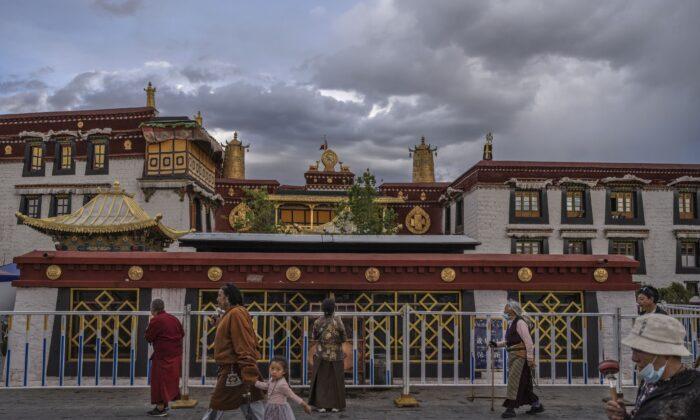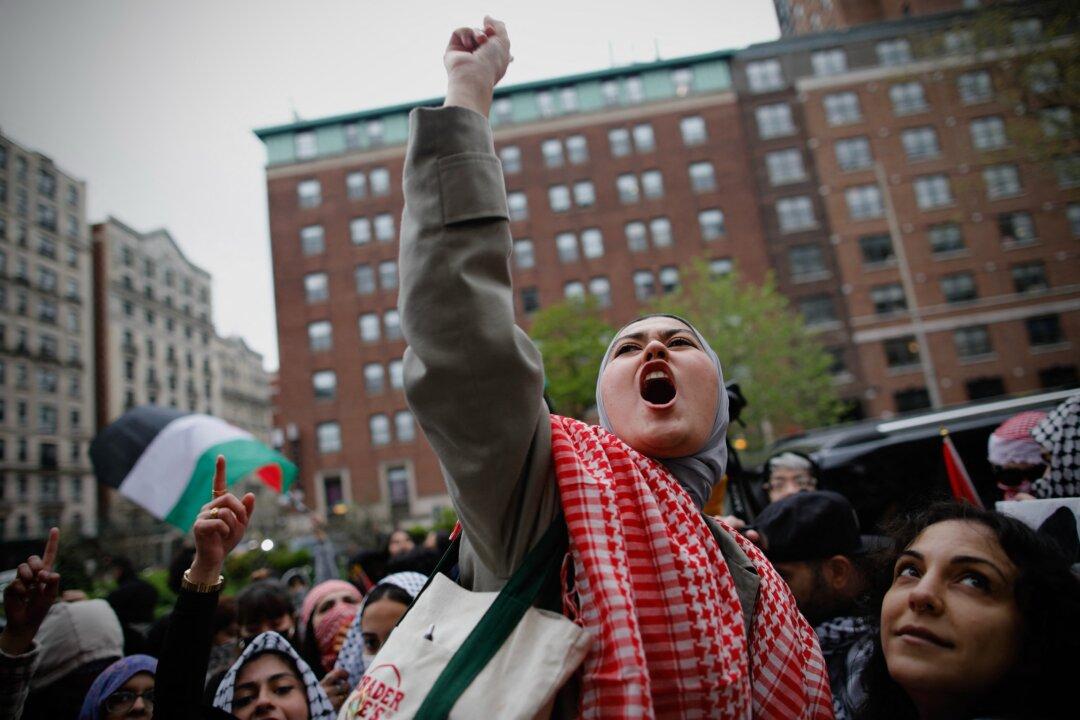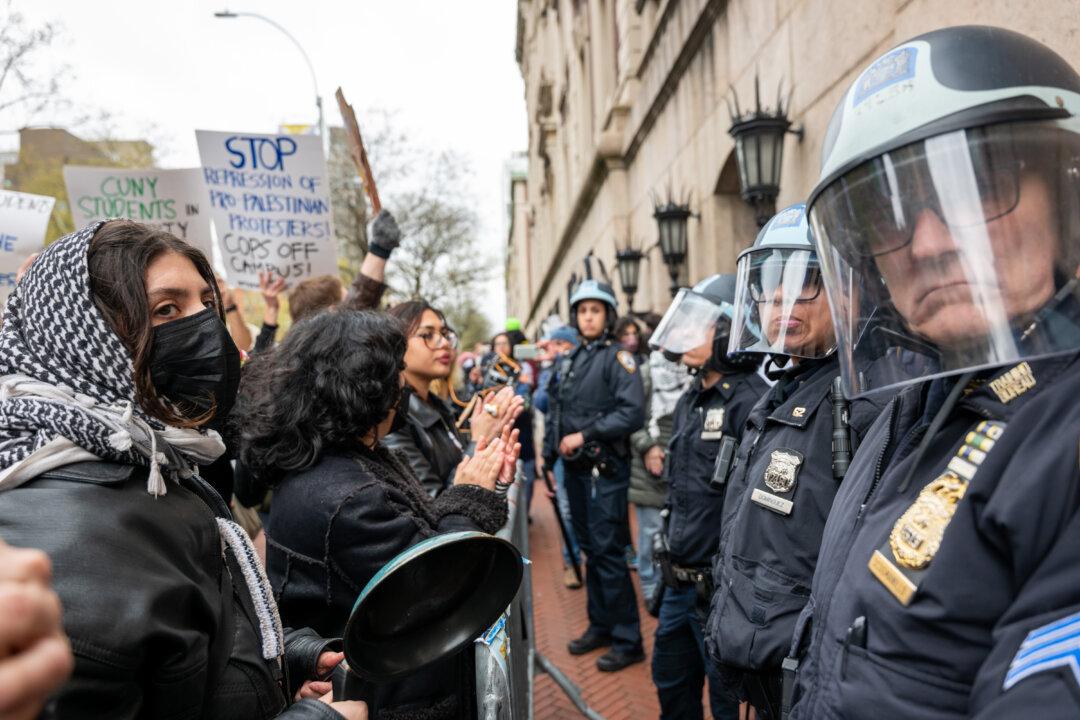Wang delivered his speech to commemorate 70 years since the “peaceful liberation” of Tibet by the People’s Liberation Army. In fact, the 1950 invasion and subsequent subjugation of Tibet by the CCP was anything but peaceful, and led to the fall of Tibet’s ancient form of government, and the 1959 flight of the Dalai Lama, Tibet’s religious leader, among 100,000 of his followers, to India.
Wang, who sits on China’s powerful poltiburo standing committee, attempted to whitewash this repressive history through his recent speech, but he instead provided contemporary evidence of state intent to commit genocide. The speech should solidify for international jurists an understanding of that intent as totalitarian and genocidal, in its project to cohere CCP power within the expanding borders of China. The CCP executes this intent through the linking and deployment of the ideas of sinicization and Chinese socialism against religious and ethnic minorities in the process of CCP extension of control through the conquest of territory and imposition of forced obedience on previously foreign populations.
As the CCP’s campaign against religion progresses, no spiritual belief is safe, because widespread spiritual practice poses a threat to the CCP’s own ideology against religion. And for some in China, the practice of spirituality must be a conscious form of rebellion against the CCP. Spiritual practice in China is thus a weakness for the CCP in its attempt to present itself as an all-encompassing and perfect form of thought and action.
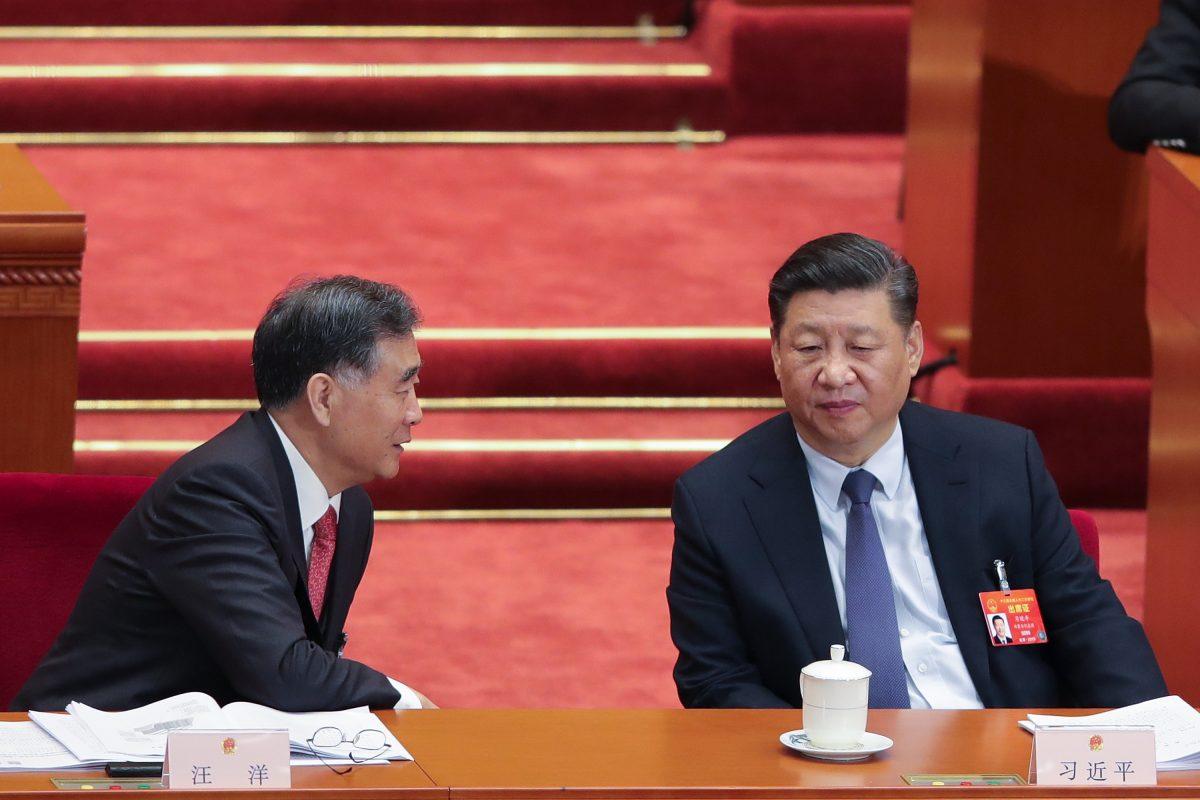
The latest evidence of CCP genocide comes in Wang’s Aug. 19 claim that “We should see that religions in China are Chinese in orientation and guide Tibetan Buddhism in adapting itself to socialist society.” Wang said, “Only by following the CPC [CCP] leadership and pursuing the path of socialism, can Tibet achieve development and prosperity.”
While Wang attempted to claim CCP support for ethnic diversity and religious freedom in Tibet, he did so in the same breath as supporting a distinctively “Chinese” persecution of minority religion. “We have followed a sound policy with distinctive Chinese features of addressing ethnic issues,” he told the crowd. “We have ended ethnic discrimination and estrangement prevalent in the old society, crushed separatist and sabotage activities committed by the Dalai group and hostile external forces, and promoted common development and prosperity of all ethnic groups through joint efforts.”
Wang’s claims of ethnic diversity and religious freedom are typical of communist lies used in the persecution of religion. But, they fly in the face of the CCP’s persecution in Tibet.
Wang’s speech illustrates the continuing demands for sinicization, socialism, and obedience from all of China to Xi Jinping’s totalitarian rule. “We should unswervingly follow Xi Jinping Thought on Socialism with Chinese Characteristics for a New Era as our guide, strengthen our consciousness of the need to maintain political integrity, think in big-picture terms, follow the leadership core and keep in alignment, enhance confidence in the path, theory, system and culture of socialism with Chinese characteristics, and uphold General Secretary Xi Jinping’s core position in both the Party Central Committee and the Party as a whole as well as the authority and centralized, unified leadership of the Party Central Committee,” Wang said in the speech.
Wang justified the CCP’s genocidal actions by claiming teleologically that the CCP was the end or “choice” of history, which impossibly personifies what is actually the determination of billions of people over millions of years. “We should keep in mind the extraordinary 100-year journey of the CPC [CCP] and keenly appreciate the fact that the CPC leadership is the choice of history and of the people,” he said.
The core of Wang’s speech deserves quotation in full as it illustrates the continuing CCP goal of state-building, assimilation of culture and religion, and crushing of dissent in Tibet.
“We should enhance harmony and stability in Tibet and ensure national security and stability in the border areas. Tibet now enjoys continued social stability: this is an achievement which has not come easily and must be all the more cherished. We should have a keen appreciation of the distinctive features of Tibet-related work at this stage, strengthen social governance and explore new ways of conducting it, and mobilize officials and the general public of all ethnic groups to forge an ironclad defense against separatist activities. We should see that religions in China are Chinese in orientation and guide Tibetan Buddhism in adapting itself to socialist society. And we should rally religious figures and believers around us in a joint effort to safeguard national security and social harmony. Tibet’s development over the past seven decades demonstrates that unity and stability is a blessing, whereas separatist activities and chaos can only lead to disaster. No one outside China has the right to point fingers at us when it comes to Tibetan affairs. Any attempt or maneuver designed to separate Tibet from China is doomed to fail.
“We should foster a strong sense of the Chinese nation as one community and advance ethnic unity and progress. The Chinese nation is one big family; harmony in this big family of ours brings prosperity. Only when we foster a strong sense of community of the Chinese nation and when all ethnic groups work together in unison with the same purpose in mind, can we create a mighty force to achieve the great rejuvenation of the Chinese nation. Efforts to raise public awareness of ethnic unity and progress should go hand in hand with efforts to raise awareness of core socialist values, of patriotism, of struggle against separatist activities, of contrast between old and new Tibet, and of the Marxist views of country, history, ethnicity, culture and religion. Such efforts will enable people of all ethnic groups to strengthen their faith in our great motherland, the Chinese nation, the Chinese culture, the CPC [CCP] and socialism with Chinese characteristics, thus solidifying the cultural foundation for ethnic unity. A shared cultural identity underpins ethnic unity. The Chinese culture has always been a bond that fosters a sense of togetherness and belonging among people of all ethnic groups in Tibet. All-round efforts should continue to be made to teach standard spoken and written Chinese language. We should foster and share Chinese cultural symbols and images of the Chinese nation among all ethnic groups, and thus create a source of inspiration for the entire Chinese nation.”
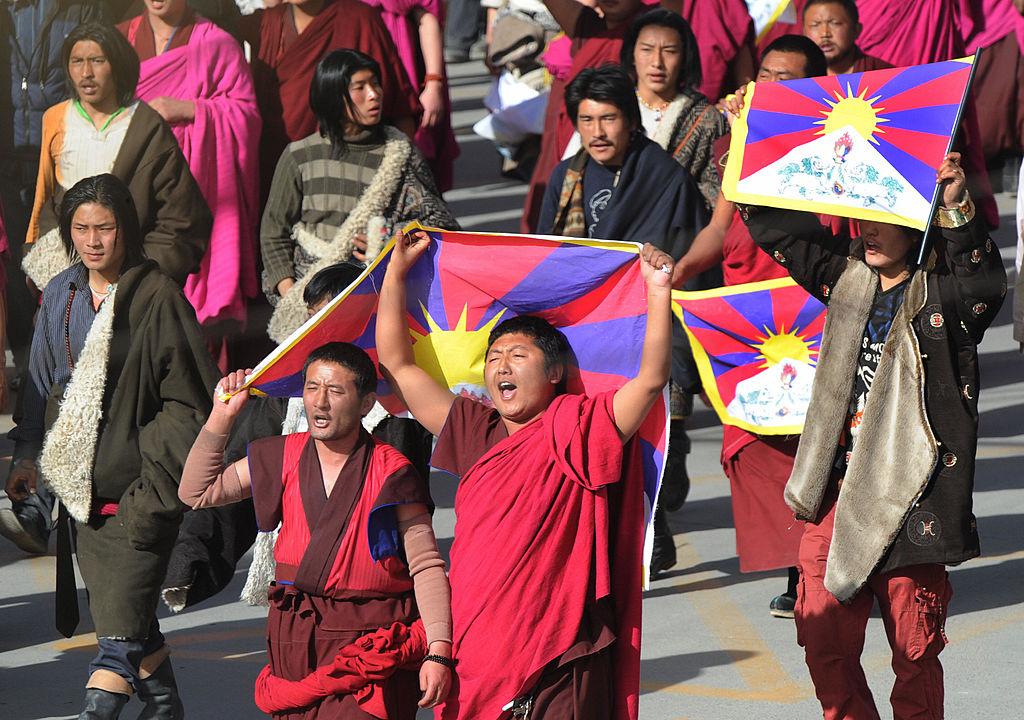
What Xi apparently wants to hear is that he is the greatest man in China since Mao Zedong, and that China has to get tough, “crush” internal “enemies,” including China’s own indigenous religions, and eventually rule the world through authoritarian socialism’s supposedly superior ethics, science, and efficiency. Xi, like many of his communist predecessors, apparently wants to replace all competing systems of belief, including religion, with his personal version of communism.
The revelation of these goals of assimilation and genocide, through their implementation against Tibetans, Uyghurs, and the Falun Gong, is a mistake for the CCP beyond the obvious ethical problem, because they warn the world of what the CCP might impose upon all of us in the future. The goal of eradicating religion must also take a terrible ethical toll on those CCP members caught up in the hierarchy, but who do not support genocidal goals and means. This creates opportunities for internal, albeit usually hidden, dissent within the CCP.
Unfortunately, many around the world are not paying attention, or believe the CCP story of mere assimilation. This encourages the expansion of atrocities from Tibet and Xinjiang, to Hong Kong, Taiwan, and perhaps further afield. To understand the CCP’s genocidal goals and means, along with its growing power, and not to take greater defensive action, is unfortunately a form of slow suicide for the rest of the world’s wonderfully diverse cultures.
